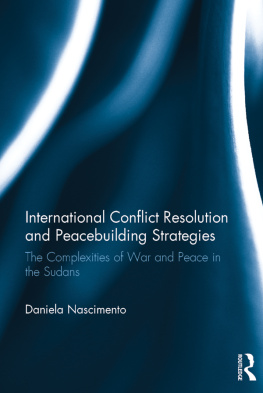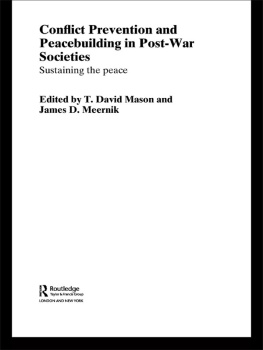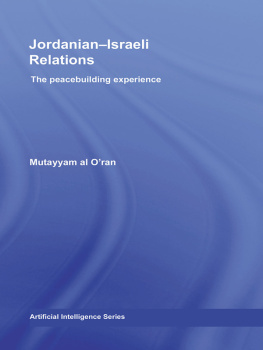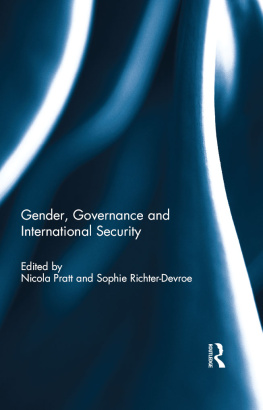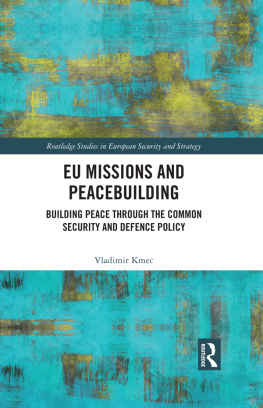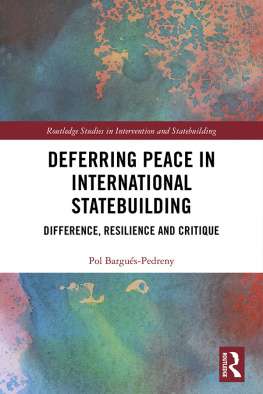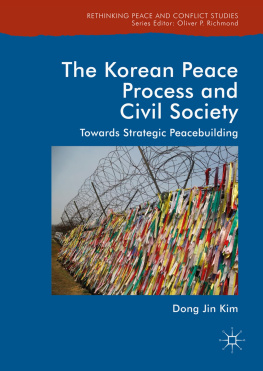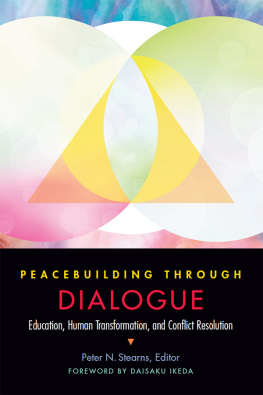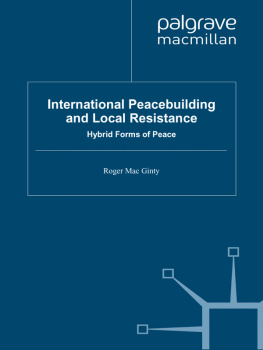International Conflict Resolution and Peacebuilding Strategies
The analysis and interpretation of conflicts can be a dangerously simplistic exercise. A western, developed socio-economic perspective can simplify conflicts in the so-called Third World as the inevitable struggles of people who cannot coexist because of ethnic, religious or cultural differences. While acknowledging that many contemporary conflicts are characterised and influenced by these factors, this book calls for an approach to conflict prevention and resolution which mainly addresses the underlying political, economic and social causes. The conflict in Sudan, where narratives evolved from an interpretation based on religious differences between a Muslim North and the Christian South, provides a case study through which the author explores how most prevention and resolution strategies were based on flawed assumptions leading to poor results. By focusing instead on the underlying socio-economic inequality and marginalisation among groups she analyses the dynamics of the complex peace process to ascertain if and how economic and social rights were effectively included and implemented as a part of the peace agreement, including after South Sudans independence.
Daniela Nascimento is an assistant professor of International Relations at the University of Coimbra (Portugal) and a researcher at the Center for Social Studies. She holds a PhD in International Politics and Conflict Resolution from the University of Coimbra, a bachelor degree in International Relations from the same University and a European Masters Degree in Human Rights and Democratisation from the Inter-European Center for Human Rights and Democratisation. Her research interests focus on peace studies, human rights, peacebuilding, humanitarian action, especially in the African context and Timor Leste. She has published various chapters and peer-reviewed articles in national and international journals and books, as well as participation in various research projects with national and international funding.
International Conflict
Resolution and Peacebuilding
Strategies
The Complexities of War and Peace
in the Sudans
Daniela Nascimento
First published 2017
by Routledge
2 Park Square, Milton Park, Abingdon, Oxon OX14 4RN
and by Routledge
711 Third Avenue, New York, NY 10017
Routledge is an imprint of the Taylor & Francis Group, an informa business
2017 Daniela Nascimento
The right of Daniela Nascimento to be identified as author of this work has been asserted by her in accordance with sections 77 and 78 of the Copyright, Designs and Patents Act 1988.
All rights reserved. No part of this book may be reprinted or reproduced or utilised in any form or by any electronic, mechanical, or other means, now known or hereafter invented, including photocopying and recording, or in any information storage or retrieval system, without permission in writing from the publishers.
Trademark notice: Product or corporate names may be trademarks or registered trademarks, and are used only for identification and explanation without intent to infringe.
British Library Cataloguing in Publication Data
A catalogue record for this book is available from the British Library
Library of Congress Cataloging in Publication Data
Names: Nascimento, Daniela, author.
Title: International conflict resolution and peacebuilding strategies :
The complexities of war and peace in the Sudans / Daniela Nascimento.
Description: New York : Routledge, 2017. | Includes bibliographical
references and index.
Identifiers: LCCN 2016040818| ISBN 9781472487513 (hardback) |
ISBN 9781315228587 (e-book)
Subjects: LCSH: Ethnic conflictSudan. | Ethnic conflictSouth Sudan. |
Conflict managementSudan. | Conflict managementSouth Sudan.
Classification: LCC HN787.Z9 .S626 2017 | DDC 305.8009624dc23
LC record available at https://lccn.loc.gov/2016040818
ISBN: 9781472487513 (hbk)
ISBN: 9781315228587 (ebk)
Typeset in Times New Roman
by Out of House Publishing
To my loving family.
To the courageous Sudanese people who have always craved and fought for peace even in the midst of the most unspeakable terror and poverty.
Contents
This book has been the result of an extremely challenging, often difficult but definitely enriching process of research and thought. A lot of people have been directly or indirectly involved in this process. Each one of them has been endlessly supportive and contributed immensely to the final work. Still, now the book is finished, I would especially like to thank a few. First of all, I would like to thank my supervisor and dear friend, Jos Manuel Pureza, for his supervision, support, guidance, endless patience and friendship in helping me understand, write, re-write and question everything every step of the way. Secondly, my dear friends and colleagues Paula Duarte Lopes, Raquel Freire, Licnia Simo, Carmen Amado Mendes and Teresa Cravo, whose true support and friendship gave me the strength to keep me going and for making it possible for me to have some time off from work to conduct essential fieldwork in Khartoum. Also, a special thank you to Rogrio Bonifcio and Margarida Calafate Ribeiro, who personally helped me and hosted me while in Khartoum; and to all of those with whom I had contact in Sudan and whose kindness, openness and support allowed me to have such an incredibly rich field experience there. It was definitely one the most memorable and rich experiences of my life.
Part of this book has also been the result of work conducted in Utrecht and Khartoum and so a special thanks is due to the EDEN Network and the HUMCRICON Consortium for the Marie Curie Fellowship, to Professor Ton Robben from the University of Utrecht and to the Gulbenkian Foundation (Portugal) for providing me with the funding and logistical support without which a substantial part of this research would not have been possible.
Last, but definitely not least, all my family for their never-ending support and to whom I dedicate this book and to all my closest friends who I did not name but who I know have been so important throughout this journey.
| AI | Amnesty International |
| AU | African Union (formerly the Organisation of African Unity) |
| EU | European Union |
| GoS | Government of Sudan |
| GoSS | Government of South Sudan |
| HRW | Human Rights Watch |
| ICG | International Crisis Group |
| IGAD | Intergovernmental Authority on Development |
| LICUS | Low-income countries under stress |
| NCP | National Congress Party |
| NDA | National Democratic Alliance (an umbrella organisation of the Sudanese opposition forces after the Muslim Brothers coup of 30 June 1989) |
| NIF | National Islamic Front |
| SPLM/A | Sudan Peoples Liberation Movement/Army |
| SPLM-IO | Sudan Peoples Liberation Movement in Opposition |
| UN | United Nations |
| UNDP | United Nations Development Programme |
| UNHCR | United Nations High Commission for Refugees |
| UNHCHR | United Nations High Commission for Human Rights |
| WB | World Bank |

